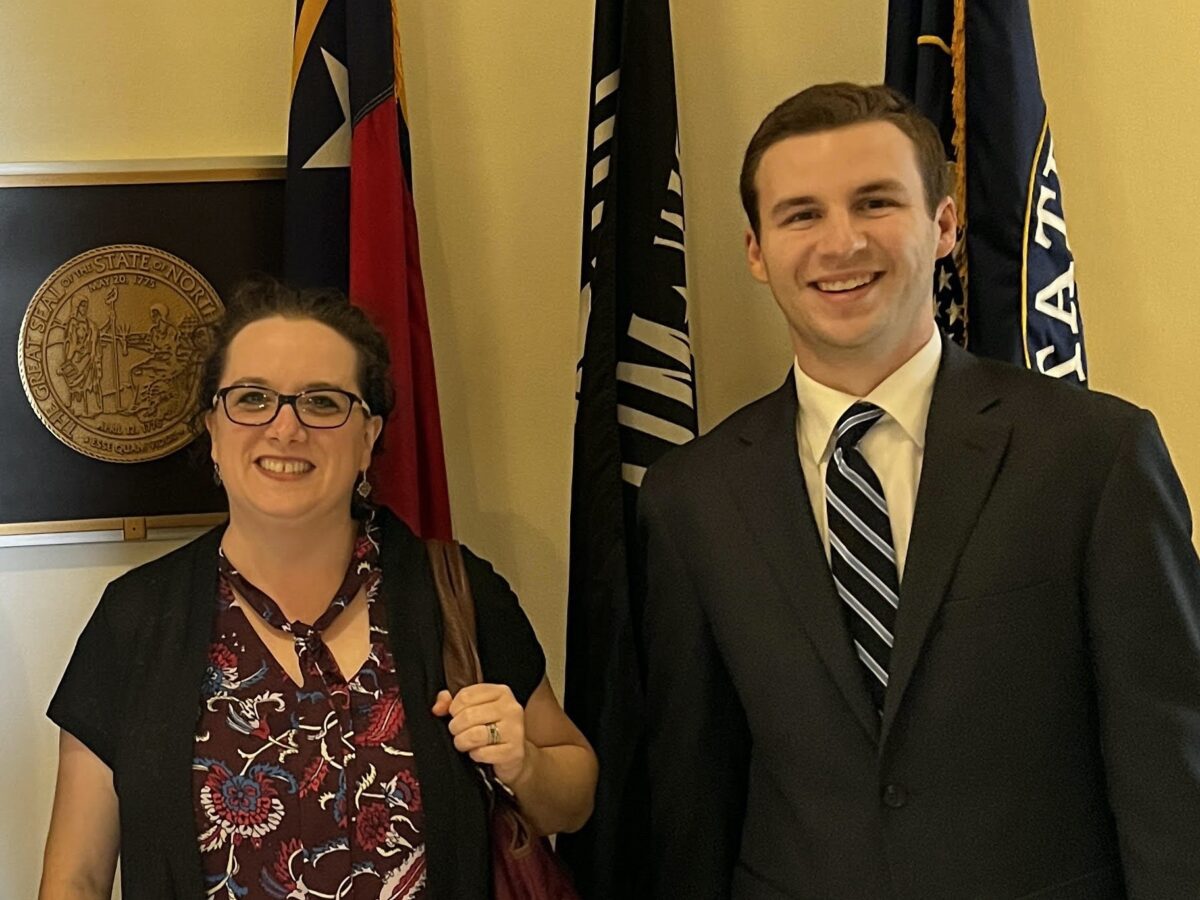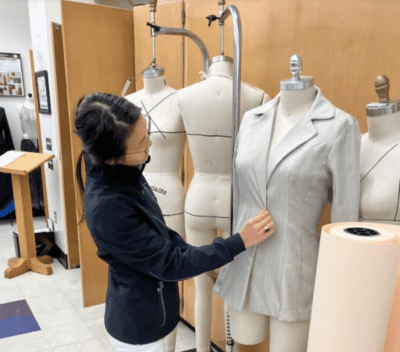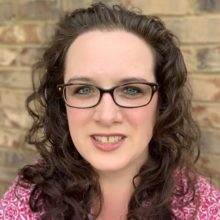
|
|
Teachers love full circle moments — those situations where our influence is broader than we imagined, as years later we encounter students from long ago in places we didn’t expect. I had one of those experiences recently.
I’m part of CarolinaTESOL, a nonprofit organization whose purpose is to improve the quality of education for English language learners, and to promote effective intercultural communication and understanding. The work of CarolinaTESOL (and the larger organization, TESOL International) involves advocating for policies that help people who teach English to speakers of other languages. I traveled to Washington, DC for an advocacy and policy summit that concluded with meeting North Carolina legislators to talk about these important issues. My full circle moment came in my sixth and final meeting of the day.
My group had a meeting scheduled with Senator Ted Budd’s legislative aide. (Senator Budd was already booked at that time, and it is common practice to meet with aides who advise the members of congress on issues.) I planned to talk about proposed legislation like the SPELL Act, which seeks to address the shortage of teachers for English language learners through an amendment to the Higher Education Act by providing loan forgiveness for teachers of English as a Second Language.
As we sat down at the oversized table to discuss policies, I started by asking Andrew, the legislative aide, where in North Carolina he grew up. When he said Raleigh, I asked where he attended high school. I didn’t expect him to name the school where I had taught for a decade, but he did!
When I explained to him that I was there to discuss issues impacting teachers of English learners, he realized that we had met years ago when he participated in tutoring the English language learning students I was there to discuss.
In that moment I realized three things:
- Teachers are shaping the future in more ways than we realize. We are teaching the next generation of policy makers.
- Policy is more personal than it sounds. Policies represent real people in real spaces who have real needs.
- Meeting with those in positions to impact policy isn’t so intimidating when you see this could mean meeting with former students.
These policies weren’t far removed and abstract — they address the needs of teachers and students who these policy makers and aides know personally.
I walked away from that meeting feeling excited about the full circle moment, and also thinking about how my actions years ago speak for me in the present day. Andrew was tutoring my students because I was committed to advocating for their needs then, just as I am now. Perhaps that consistent dedication speaks to those in positions of power. It is my hope that they will see and realize that we have been working with too few resources and too great a burden. I am seeking solutions today just like I sought solutions through peer tutoring years ago.
I’m no longer a classroom teacher. I’m now a researcher in Duke University’s Center for Child and Family Policy, where I do educational research that informs policy. After my recent meeting with Andrew, I’ll forever think of policy in a more personal way.
Recommended reading




